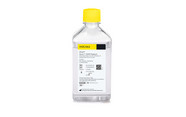Serial Killer?
Serialization is more than just adding a number to a box – data management will be the key challenge. And the deadline is fast approaching...
Serialization deadlines are nigh; the US regulations, part of the Drug Supply Chain Security Act (DSCSA), come into force in November this year – and any company with a commercialized product in this market will need to be compliant, meaning that manufacturers, contract packaging companies, wholesalers and distributors must all be able to exchange information concerning the journey of the drug throughout the supply chain. All stakeholders, including relevant authorities, need to be able to retrieve this information.
Europe has also set a deadline for track and trace of commercialized pharma products via its Falsified Medicines Directive (FMD), which comes into force in 2019. The FMD aims to enable medicines to be tracked across the pharma supply chain, and to help verify authenticity and eliminate counterfeit drugs. Manufacturers will be required to mark each drug product with a serialized code and the data need to be submitted to the European hub.
Serialization – and track and trace – is not just about adding a serial number to a box, it’s about managing the data and transactional information associated with the movement of the drug throughout the supply chain, including when it is first stamped, when it is received, when there is a change of ownership between companies, and so on. And that’s potentially tens of thousands of times more data than pharma companies are used to managing. The data must be securely stored – but also accessible at all times. For example, if an authority calls to verify the data, a company will have 24 hours to retrieve the information relating to the transaction document that has been exchanged between owners at a certain point in the supply chain. The complexities surrounding data storage and management have led many companies to outsource their IT infrastructure, specifically to implement cloud solutions, as they offer the capacity to manage large volumes of data while facilitating easy access.
Is the pharma industry ready for serialization? A good question – and the answer depends on which companies you ask. Major pharma companies have been preparing for the impact that serialization will have on their product portfolio and the wider supply chain for many years. Many mid-sized and small companies, however, are lagging behind – and that includes contract manufacturing organizations.
When implementing track and trace, pharma companies need to look at both their internal and external production and, from an internal standpoint, consider how many packaging lines they will need to equip, and how they can manage the volumes of product and data for each individual market. Companies that outsource production, on the other hand, need to undertake a full and careful analysis of external partners to identify how ready they are, and also how they plan to exchange data safely and securely.
The industry is (painfully) aware that the clock is ticking. One of the biggest misconceptions around serialization is the time and effort required – it’s enormous. Large companies have been able to create full teams dedicated to serialization, but this isn’t possible for many smaller companies. Common issues include problems at the production site level, such as implementing the necessary hadrware, software and cloud capabilities. Most companies also focus on their own production site before realizing they also have to manage their external network or ecosystem. As soon as you have to exchange data with external partners, who are potentially sharing data with multiple companies, you are faced with the big question of the standards that are used to exchange data (and I recommend a standardized approach).
With multiple production lines to equip, there is the potential for bottlenecks – particularly as the resource availability of the market is becoming more limited as everyone rushes to meet the deadlines. Once again: serialization is not a short-term project – you need to act sooner rather than later.
Remember that not all solutions are equal. As serialization involves managing and sharing data among a complex web of supply chain partners, pharmaceutical companies should consider joining a large network that allows them to simplify the process. But bear in mind that looks can be deceiving; anyone can create a website or portal, but infrastructure that is able to manage large volumes of data is the most important aspect. In the world of compliance, nothing beats experience.
Jean-Marie Aulnette is Vice-President of EMEA Sales at Tracelink, UK.


















